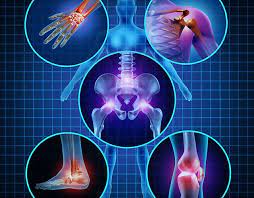Neuropathic pain patients may experience shooting or burning agony. The pain may be continuous or intermittent. Tingling, numbness, and loss of sensation are some common symptoms.
Neuropathic pain is most commonly caused by a chronic, degenerative nerve disease, although it can also be caused by an injury or infection.
If you have chronic neuropathic pain, it can flare up at any time and for no apparent reason. Acute neuropathic pain, albeit uncommon, can occur.
Non-neuropathic pain (nociceptive pain) is frequently the result of an injury or illness. If you drop a heavy book on your foot, your brain system immediately transmits pain signals.
In most cases, neuropathic pain is not precipitated by an occurrence or damage. Instead, without prompting, your body sends pain signals to your brain. Neuropathic pain worsens over time.
What exactly causes neuropathic pain?
The four most common causes of neuropathic pain are disease, injury, infection, and limb loss.
Disease
Neuropathic pain can be a symptom or a side effect of many different diseases and conditions. Among them are multiple sclerosis, multiple myeloma, and different malignancies.
Although not everyone with these disorders has neuropathic pain, it can be a concern for some.
Diabetes is responsible for 30% of neuropathic cases, according to the Cleveland Clinic. Diabetes may have an impact on how your nerves work.
Diabetes patients typically experience limb and finger numbness and loss of feeling, followed by pain, burning, and stinging.
Injuries
Injuries to the tissues, muscles, or joints are an uncommon cause of neuropathic pain. Nerve injury can also be caused by back, leg, or hip problems or traumas.
While the injuries may heal, the harm to the nervous system may not. As a result, you may experience discomfort for many years following the accident.
Spinal injuries or accidents can also cause neuropathic pain. Herniated discs and spinal cord compression might cause nerve fibre damage in your spine.
Infection
Infections are almost seldom the cause of neuropathic pain.
Shingles, which is caused by the reactivation of the chicken pox virus, can induce nerve discomfort for several weeks. Post herpetic neuralgia is a rare shingles syndrome that causes prolonged neuropathic pain.
A syphilis infection can occasionally induce searing and stinging pain. HIV patients may experience unexplained pain.
What are the symptoms and signs?
Although each person’s neuropathic pain symptoms vary slightly, the following are common:
- Shooting, scorching, or stabbing pain
- Tingling and numbness, also known as “pins and needles”
- Spontaneous pain is pain that occurs without stimulation.
- Pain generated by non-painful acts such as rubbing against something, being in cold weather, or brushing your hair
- A constant feeling of being unpleasant or strange
- Sleeping or relaxing issues
- Emotional problems caused by chronic pain, sciatic nerve discomfort, lack of sleep, and difficulty expressing how you feel
How is it managed?
The goal of treating neuropathic pain is to identify and treat the underlying disease or condition that is causing the pain.
Your doctor will work hard to relieve your pain Diabetic neuropathy, help you retain normal capacities despite the discomfort, and improve your quality of life.
The following are the most commonly used treatments for neuropathic pain:
Prescription medication
Opioids do not generally relieve neuropathic pain as well as other types of pain. Furthermore, doctors may be cautious to prescribe them for fear of the patient becoming dependent on them.
Topical analgesics can also be used. Examples include lidocaine patches, capsaicin patches, and prescription-strength ointments and lotions.
Medications for depression
Antidepressant medications have shown great potential in treating neuropathic pain.
People suffering with this condition are often prescribed one of two types of antidepressant medications:
- Tricycles for antidepressants
- Serotonin and epinephrine reuptake inhibitors
These medicines may be used to treat both the pain and the depression or anxiety symptoms caused by chronic pain.
How can this pain be managed?
If your doctor is able to identify the source of your neuropathic pain, treating it may reduce or even eliminate the discomfort.
Diabetes is a common cause of neuropathic pain. Treatment for diabetes, which includes a healthy diet and regular exercise, may remove or reduce neuropathic pain.
Keeping blood sugar levels stable can also help to keep discomfort and numbness at bay.

